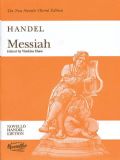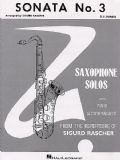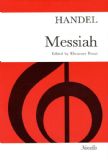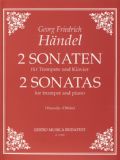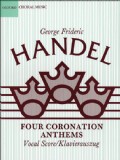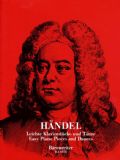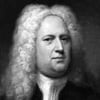
George Frideric Handel
Handel was the cosmopolitan composer of his age, and one of music’s greatest melodists. He is most famed as a composer of oratorios such as the evergreen Messiah, and works for ceremonial occasions such as the Water Music and the Music for the Royal Fireworks. He is also increasingly recognised as one of history’s leading opera composers, investing the formal framework of the time with vivid characterisation and larger-than-life emotions. He wrote for the leading vocalists of the day, exploiting their virtuosity in operas such as Julius Caesar, Tamerlano and Rodelinda, while also capable of a touching simplicity in arias including the famous Largo from Xerxes.
Handel, like Bach, was born in 1685 in Germany. He trained as a keyboard player and set out to seek his fortune in Hamburg, working first as a violinist and developing his talents as a composer. In 1707 he travelled to Italy where he met Corelli and Scarlatti, and learnt his trade as an opera composer, scoring his first big success in Venice with the opera Agrippina. While employed by the Elector of Hanover, Handel established himself in London with a lavish staging of Rinaldo. The Elector became King George I and Handel’s affiliation with London was sealed, leading in 1727 to his naturalisation as an English citizen.
In the 1720s Handel became a central figure on the London opera stage, as Musical Director of the Royal Academy of Music, presenting nine seasons of operas with Europe’s leading singers. After initial success, the company collapsed and Handel set himself up as an impresario, battling against rival companies. He moved to the Covent Garden theatre with two works blending opera and ballet, Ariodante and Alcina, but stiff competition caused the company to close. In the 1730s and 1740s Handel turned his attention to oratorios, riding a public interest in works for massed choir and orchestra. Successes included Saul, Belshazzar and Judas Maccabeus, but it was a series of Messiah performances in the 1750s that ensured his place in the public’s affection. Worsening eyesight led to blindness in 1753 and he died six years later, a rich and successful man, being buried in Westminster Abbey in the presence of 3000 mourners.
Bestselling Titles by George Frideric Handel
-
Publisher: NovelloIn Stock: Usually despatched within 24-48 hours$15.37
-
Publisher: Hal LeonardIn Stock: Usually despatched within 24-48 hours$6.34
-
Publisher: NovelloIn Stock: Usually despatched within 24-48 hours$16.50
-
Publisher: Editio Musica Budapest ZenemukiadóUsually despatched within 7-10 working days - Lead times may vary in the case of supplier shortages or delays$15.23
-
Publisher: Oxford University PressUsually despatched within 7-10 working days - Lead times may vary in the case of supplier shortages or delays$20.00
-
Publisher: BärenreiterUsually despatched within 7-10 working days - Lead times may vary in the case of supplier shortages or delays$15.88$15.08



